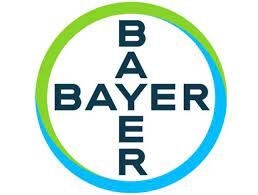In a news cycle that has delivered both good and bad news to Bayer and its shareholders in rapid succession, the latest good news was delivered by the Ninth Circuit. But a drastic shake-up of Bayer’s corporate structure may be coming.
In a case whose outcome was cheered by the many agricultural interests who joined the case, the Ninth Circuit upheld a permanent ban on California’s attempts to force Bayer’s Roundup product to carry a label warning that its key ingredient, glyphosate, could cause cancer.
The court stated that the conclusion of a single agency, the International Agency for Research on Cancer, in 2015 that glyphosate is “probably carcinogenic” to humans was “[a] conclusion …not shared by a consensus of the scientific community.” Because it’s not an uncontested scientific fact, the proposed warning would amount to “compelled speech” violating the First Amendment rights of the company.
Bayer has consistently made that argument ever since. Nevertheless, that single conclusion sparked a tsunami of lawsuits against Bayer alleging that Roundup caused plaintiffs’ non-Hodgkins’s lymphoma. Bayer has paid out about $11 billion to date to settle about 100,000 claims in block settlements with plaintiff attorneys, while not admitting any wrongdoing and continuing to argue that glyphosate is safe. There are about 40,000 estimated cases outstanding.
Bayer has already promised to withdraw glyphosate from its lawn and garden businesses—from where most claims come. After winning a string of nine consecutive cases this year, Bayer recently lost three, including one with a damage amount of $332 million in California. That verdict included $7 million in compensatory damages and $325 million in punitive damages awarded to plaintiff Mike Dennis, who was diagnosed at age 51 with a form of non-Hodgkins’s lymphoma.
The financial press is reporting that Bayer’s new CEO, Bill Johnson, is signaling a drastic shake-up of the company structure that could include separating its consumer health and crop sciences businesses. In a statement accompanying third-quarter earnings reports, Johnson said, “We’re not happy with this year’s performance. Nearly 50 billion euros in revenue but zero cash flow is simply not acceptable.”
According to the online publication BioPharmaDive, Johnson blamed layers of bureaucracy built up since the company was founded in 1863. He said there were 12 layers of bureaucracy between him and Bayer’s customers, signaling to analysts that big job cuts could be coming.
David Murray can be reached at [email protected].



